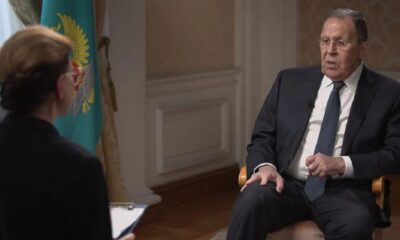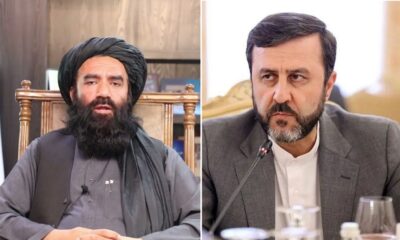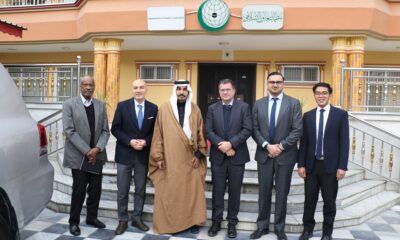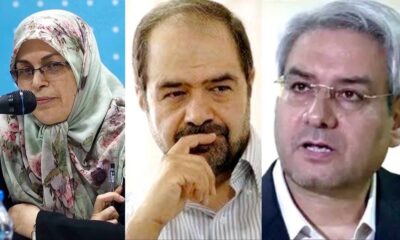Latest News
World ‘must engage’ or risk Afghanistan’s collapse, UN Security Council hears
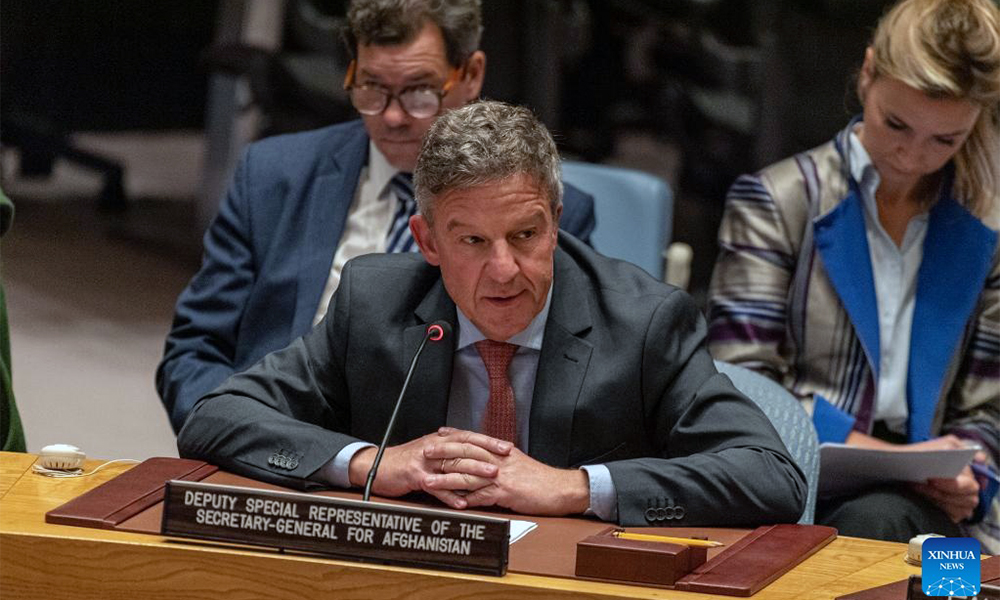
Senior UN envoy for Afghanistan, Markus Potzel, said on Tuesday that despite some positive developments over the past few months , “patience is running out” for many in the international community when it comes to effectively engaging with the Islamic Emirate of Afghanistan (IEA).
Addressing the UN Security Council meeting, he also said while there have been positive developments they have been “too few and too slow and they are outweighed by the negatives”.
Potzel said the ongoing ban on girls’ secondary education and growing restrictions on women’s rights, were “signals that the Taliban (IEA) are indifferent to more than 50 percent of the population” and are willing to risk international isolation.
“The relegation of women and girls to the home not only deprives them of their rights, but Afghanistan as a whole is denied the benefit of the significant contributions that women and girls have to offer,” he said.
He also said the UN Assistance Mission in Afghanistan (UNAMA) has monitored a steady rise in security incidents by terrorist groups and others.
“Our earlier warnings about the capabilities of Islamic State Khorasan Province (Daesh) were dismissed by the Taliban (IEA)”, he told ambassadors.
“But ISKP has demonstrated in the last few months alone that it can carry out assassinations of figures close to the Taliban (IEA), attacks against foreign embassies, as well as fire rockets across Afghanistan’s border to attack its neighbours – all while maintaining its long-standing sectarian campaign against Shia Muslims and ethnic minorities,” said Potzel.
He noted that armed clashes are continuing between IEA security forces and armed opposition groups in the Panjshir, Baghlan, Kapisa, Takhar, and Badakhshan provinces.
As per capita income has collapsed to 2007 levels – erasing 15 years of economic growth – the country’s economic situation “remains tenuous” due in part to Afghanistan’s isolation from the international banking system.
“Liquidity remains heavily dependent on the cash that the UN continues to bring in for humanitarian operations – cash, I must stress, that supports the needs of the Afghan people and does not directly reach the de facto authorities,” said Potzel.
But even the funding is uncertain as the 2022 Humanitarian Response Plan has only received $1.9 billion out of a $4.4 billion requirement.
Humanitarian and economic measures will not meet the Afghan people’s longer-term needs, and the emergency aid cannot replace essential service delivery systems, such as health and water, or hold off an economic collapse, he warned.
While the IEA has not been recognized by any State, the international community also does not want to see the country collapse, Potzel stressed.
“If the Taliban (IEA) do not respond to the needs of all elements of Afghan society and constructively engage within the very limited window of opportunity with the international community, it is unclear what would come next,” he said.
“Further fragmentation, isolation, poverty, and internal conflict are among the likely scenarios, leading to potential mass migration and a domestic environment conducive to terrorist organizations, as well as greater misery for the Afghan population.
“That’s why we have to engage”, he declared, adding that “continued qualified engagement” was the most realistic way of helping the Afghan people.
Latest News
Terrorist activities observed along Afghanistan borders, says Lavrov
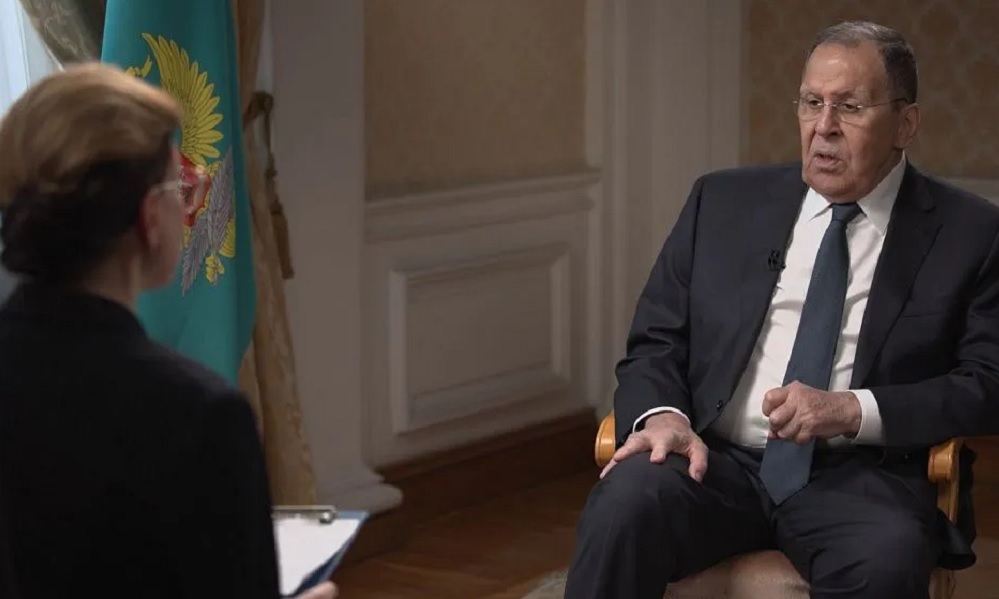
Terrorist activities continue to be observed along Afghanistan borders and along the India–Pakistan–Afghanistan corridor, Russian Foreign Minister Sergei Lavrov said in an interview published on Monday.
Speaking to Russia-based media outlet TV BRICS, Lavrov pointed to ongoing concerns in the Middle East, including its Asian regions.
He highlighted the importance of collaboration with India at the United Nations to advance a global counter-terrorism convention.
Lavrov stated that while the draft convention has already been prepared, consensus on its adoption has not yet been reached.
Russia has repeatedly expressed concern about militant threats from Afghanistan. The Islamic Emirate, however, has dismissed the concerns saying that it will not allow Afghanistan’s soil to be used against any country.
Latest News
Afghan border minister holds phone talks with Iran’s deputy foreign minister
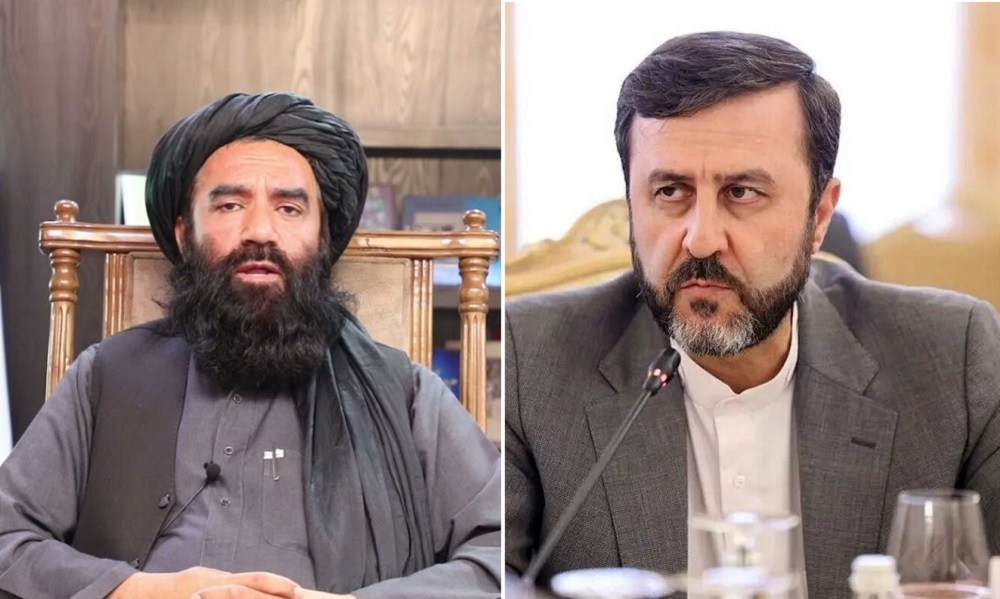
Noorullah Noori, Afghanistan’s Minister of Borders and Tribal Affairs, held a phone conversation with Kazem Gharibabadi, Iran’s Deputy Foreign Minister for Legal and International Affairs, to discuss bilateral border cooperation.
According to the Iranian news agency IRNA, both sides reaffirmed their commitment to strengthening border collaboration, with a particular focus on the ongoing renovation and updating of border markers. They also agreed to accelerate joint technical and legal meetings to enhance coordination.
As part of the agreement, the next meeting of senior border officials from Afghanistan and Iran is scheduled to take place in Iran in 1405 (2026–2027).
Latest News
OIC Kabul mission chief meets German envoy to discuss Afghanistan situation
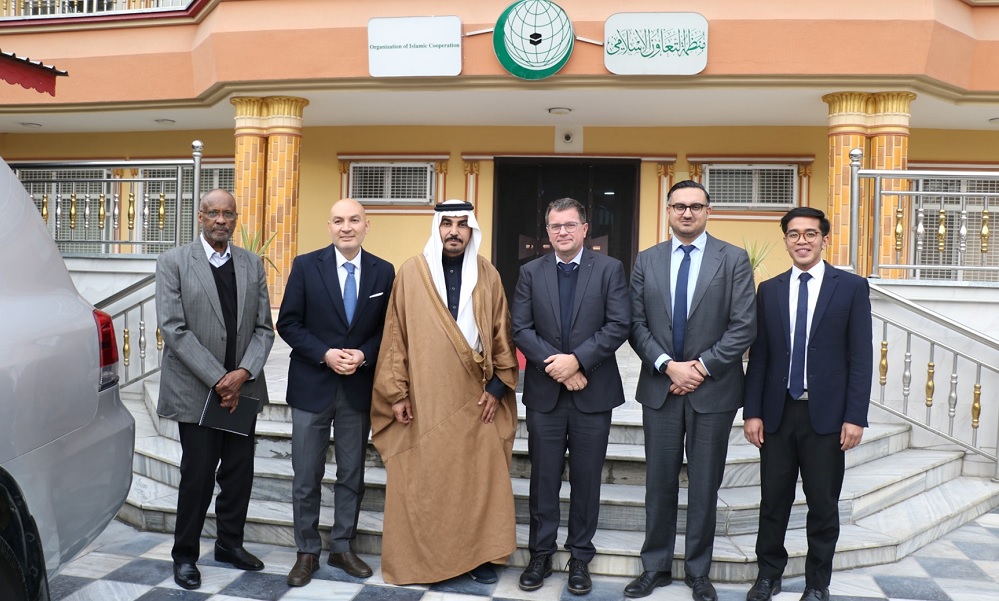
The Director General of the OIC Mission in Kabul, Mohammed Saeed Alayyash, met on Sunday with Rolf Dieter Reinhard, Head of the German Liaison Office for Afghanistan in Doha and Acting Chargé d’Affaires of the German Embassy in Afghanistan.
During the discussion, both sides exchanged views on the latest developments in Afghanistan. They focused on the security situation, as well as the humanitarian and economic conditions faced by the Afghan people.
The two officials also reviewed recent political developments and broader challenges in the country, highlighting the need for continued international engagement and support.
The meeting emphasized the importance of ongoing cooperation and coordination between the OIC Mission and the German side in addressing Afghanistan’s challenges and in supporting efforts to promote stability and improve the humanitarian situation.
-

 Latest News2 days ago
Latest News2 days agoAfghanistan to grant one- to ten-year residency to foreign investors
-

 Latest News4 days ago
Latest News4 days agoTerrorist threat in Afghanistan must be taken seriously, China tells UNSC
-

 Sport5 days ago
Sport5 days agoAfghanistan beat West Indies in final T20 WC warm-up match
-

 Sport3 days ago
Sport3 days agoIndonesia shock Japan to reach historic AFC Futsal Asian Cup final
-

 Sport4 days ago
Sport4 days agoMilano Cortina 2026 Winter Olympics: What You Need to Know
-

 Sport2 days ago
Sport2 days agoIran clinch AFC Futsal Asian Cup 2026 in penalty shootout thriller
-

 Latest News4 days ago
Latest News4 days agoUS Justice Department to seek death penalty for Afghan suspect in National Guard shooting
-

 Latest News2 days ago
Latest News2 days agoAfghanistan says Pakistan is shifting blame for its own security failures


